Business Law Case Study: Enforceability of Agreements and Intention
VerifiedAdded on 2021/06/18
|6
|1237
|89
Case Study
AI Summary
This case study analyzes a business law scenario concerning a dispute over a contractual agreement. The core issue revolves around whether the parties involved intended to create legally binding relations. The assignment delves into the essential element of 'intention to create legal relations' in contract law, referencing key legal precedents such as Air Great Lakes Pty Ltd v KS Easter (Holdings) Pty Ltd, Rose and Frank & Co v Crompton, and Kleinwort Benson Ltd V Malaysia Mining Corporation Bhd. The analysis distinguishes between commercial and domestic agreements, examining the presumptions courts make regarding the parties' intentions. The case also addresses the application of the objective test, as highlighted in Carlill v Carbolic Smoke Ball Company, to assess whether a reasonable third party would consider the parties intended to create legal relations. The assignment further considers the rebuttable nature of presumptions, particularly in domestic agreements as per Balfour v Balfour and Ermogenous v Greek Orthodox Community of SA Inc, and how evidence can influence the court's decision. The conclusion determines whether the contract between the parties is enforceable based on the established principles of contract law and the intention of the parties involved.
1 out of 6
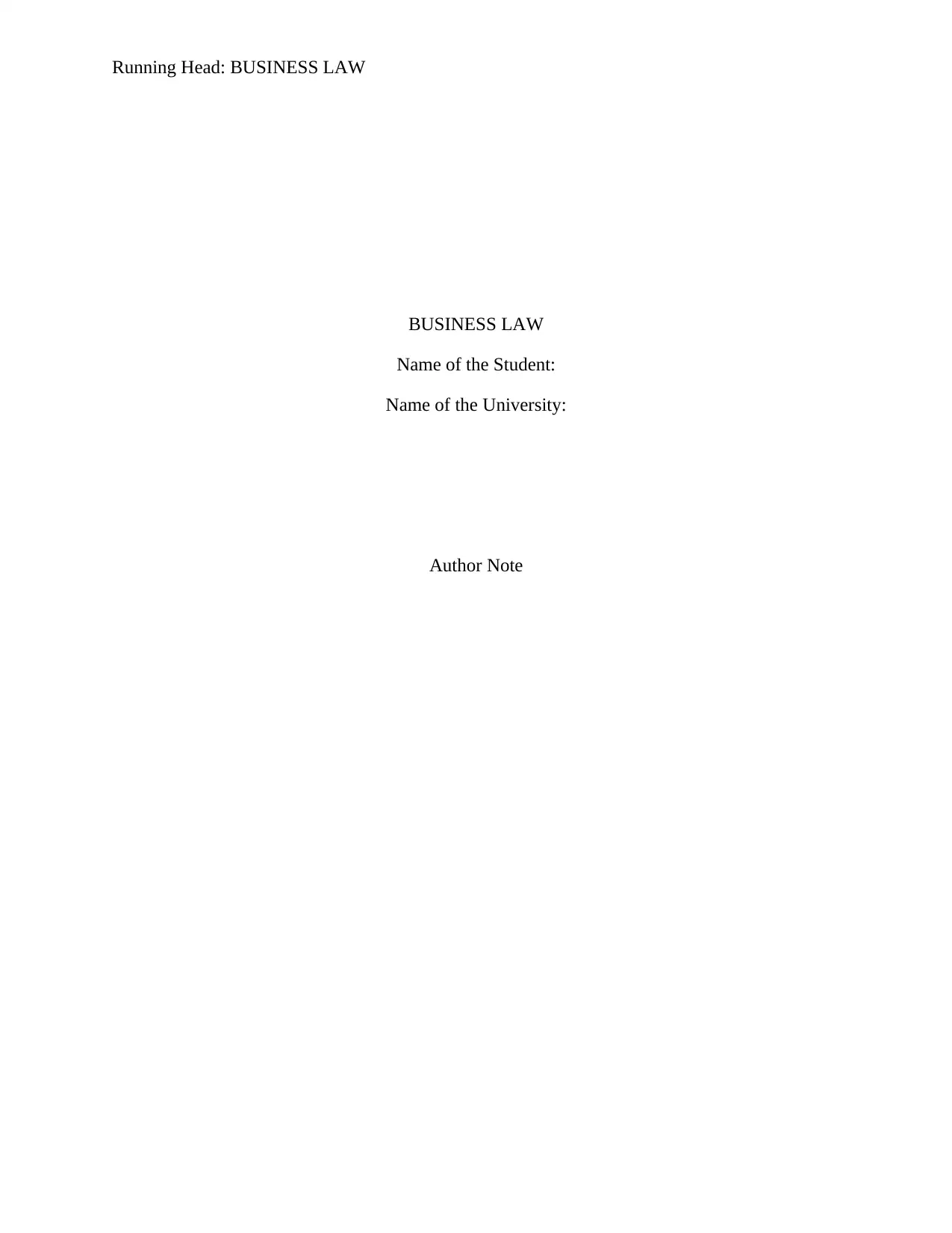
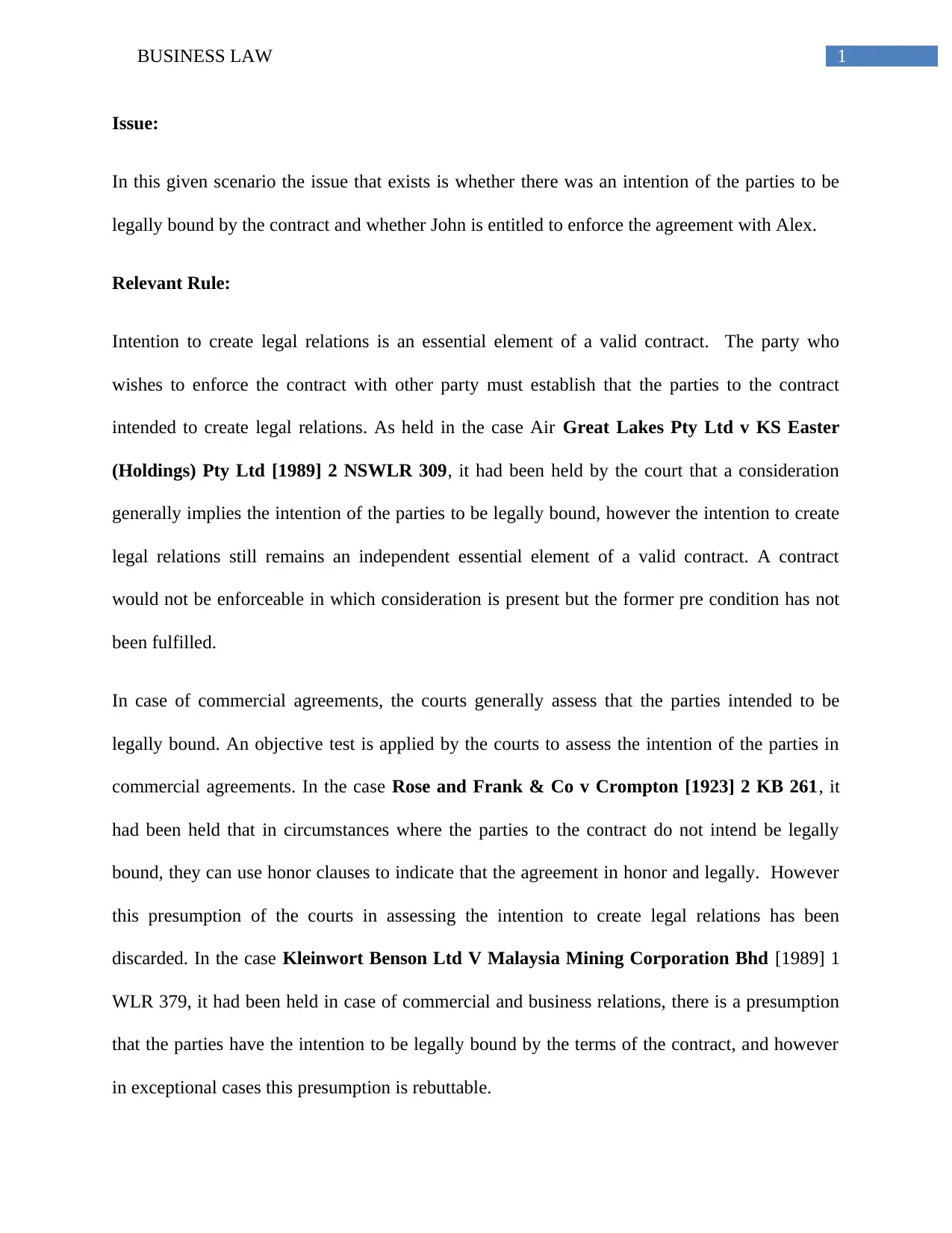
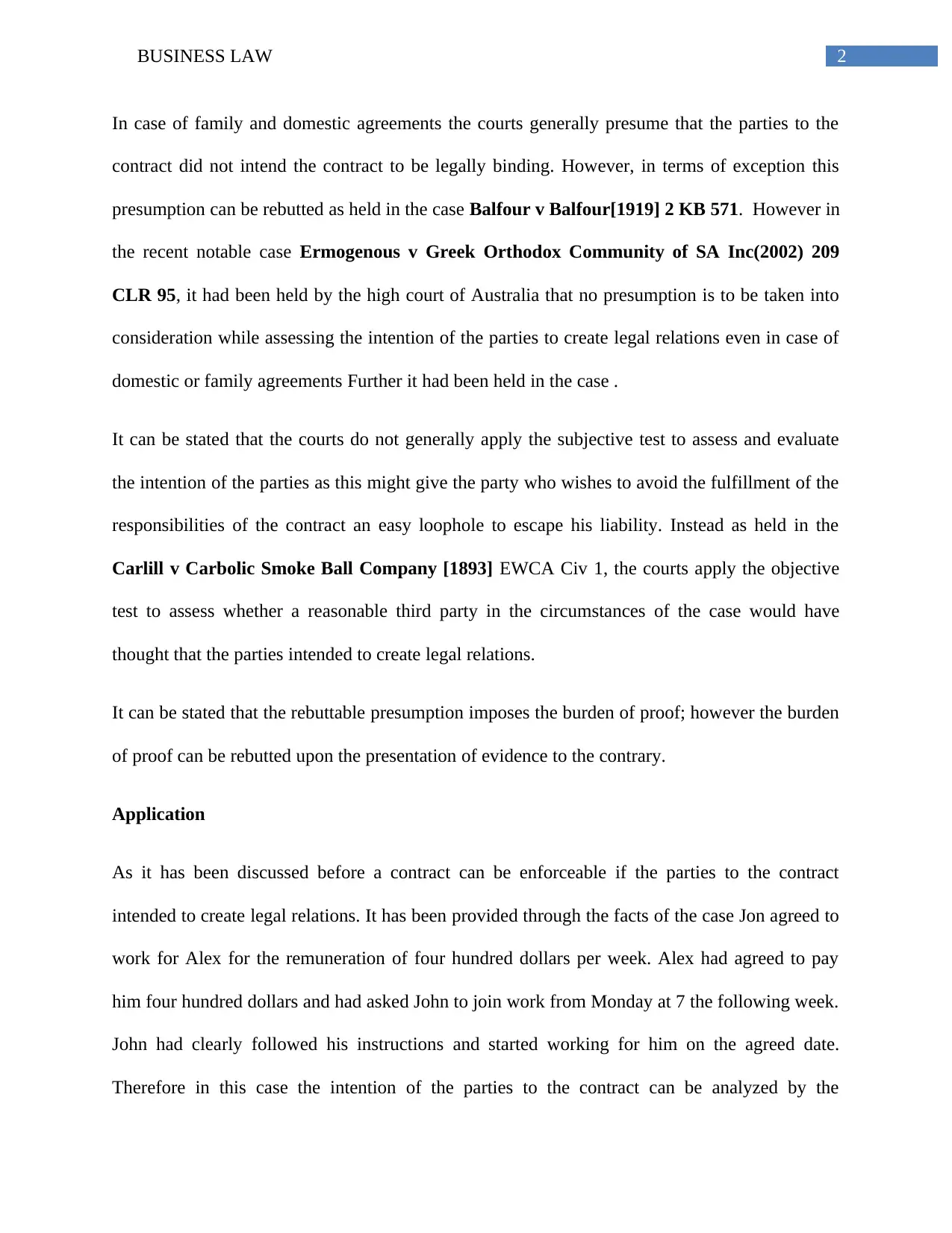

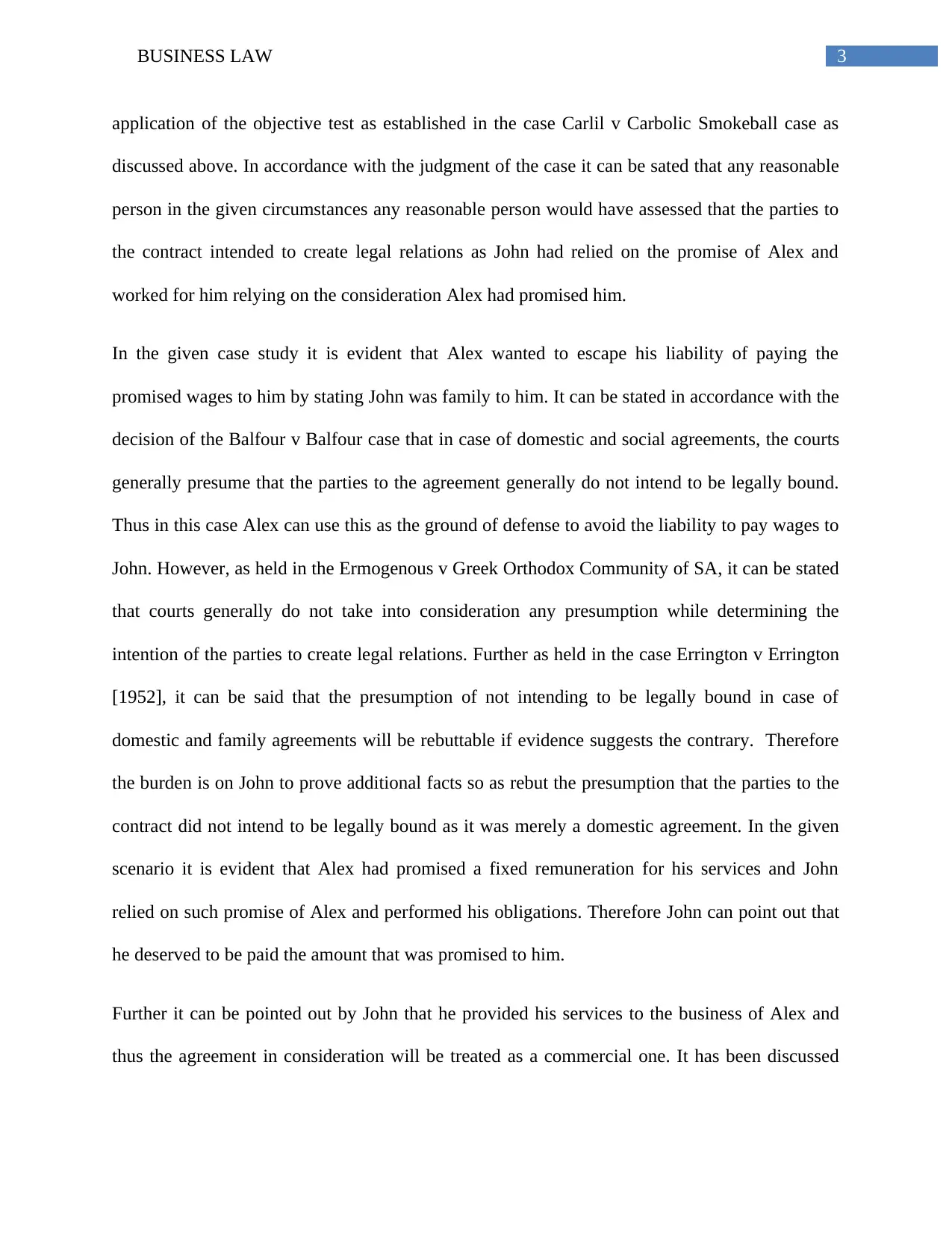
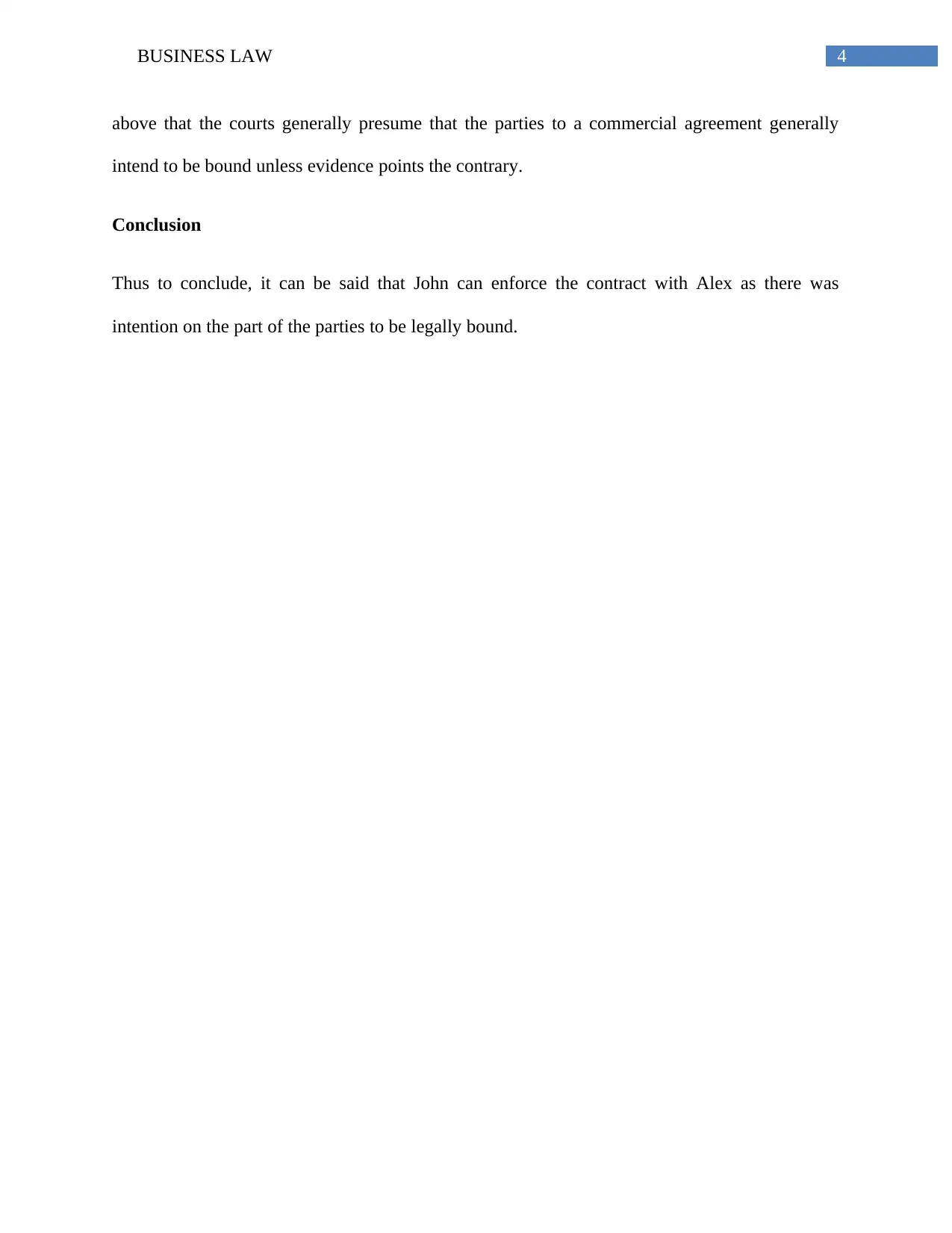
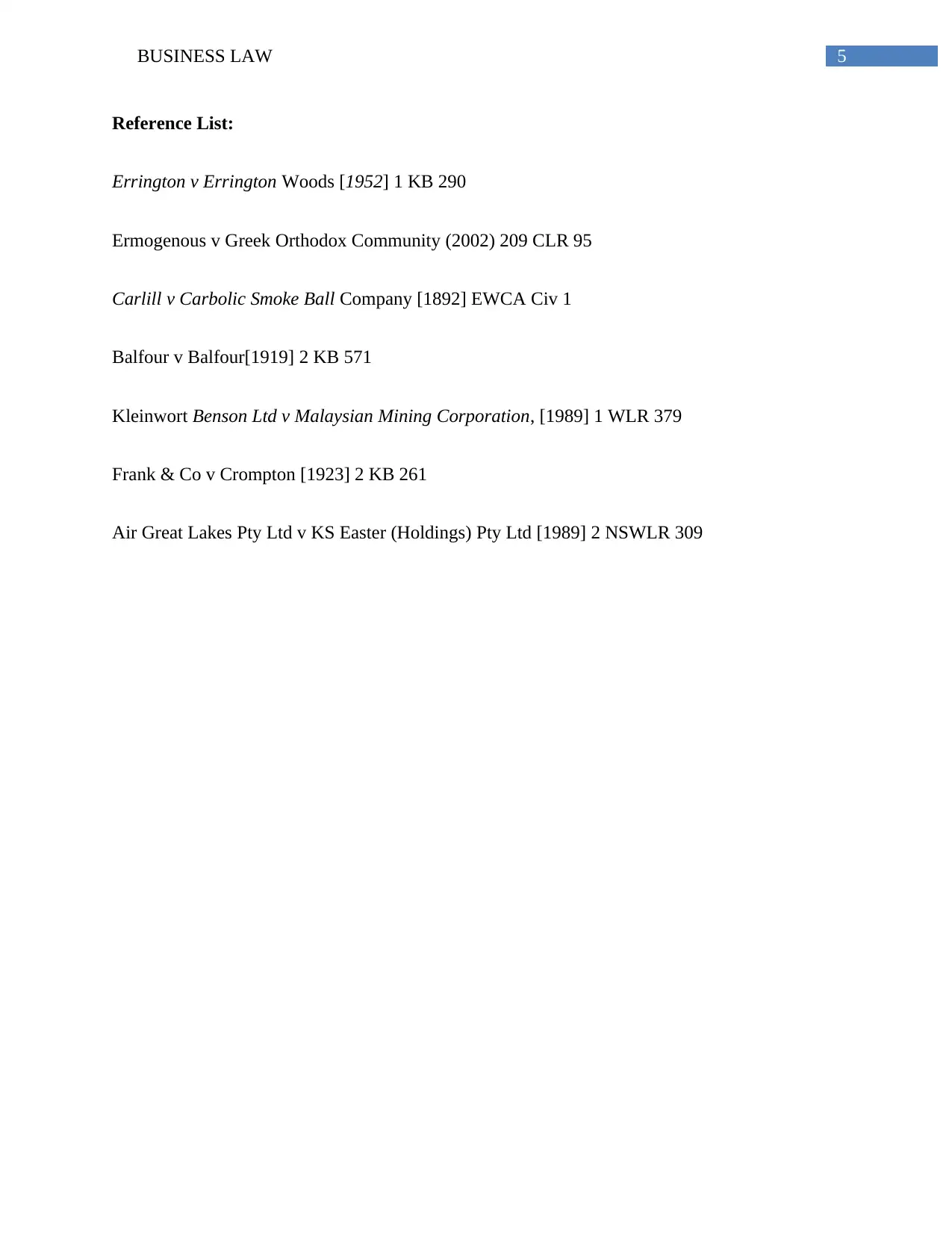



![[object Object]](/_next/static/media/star-bottom.7253800d.svg)